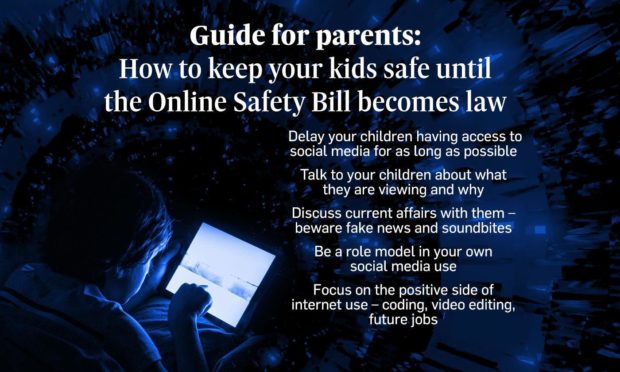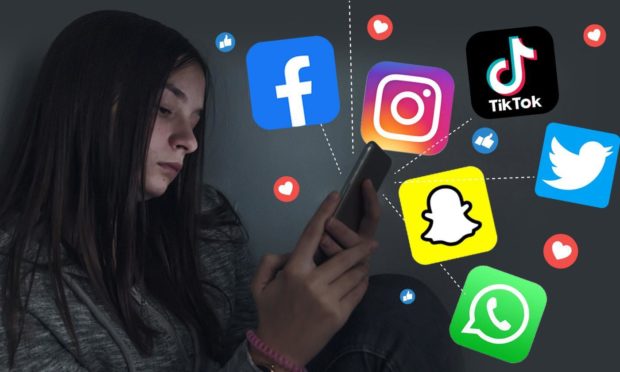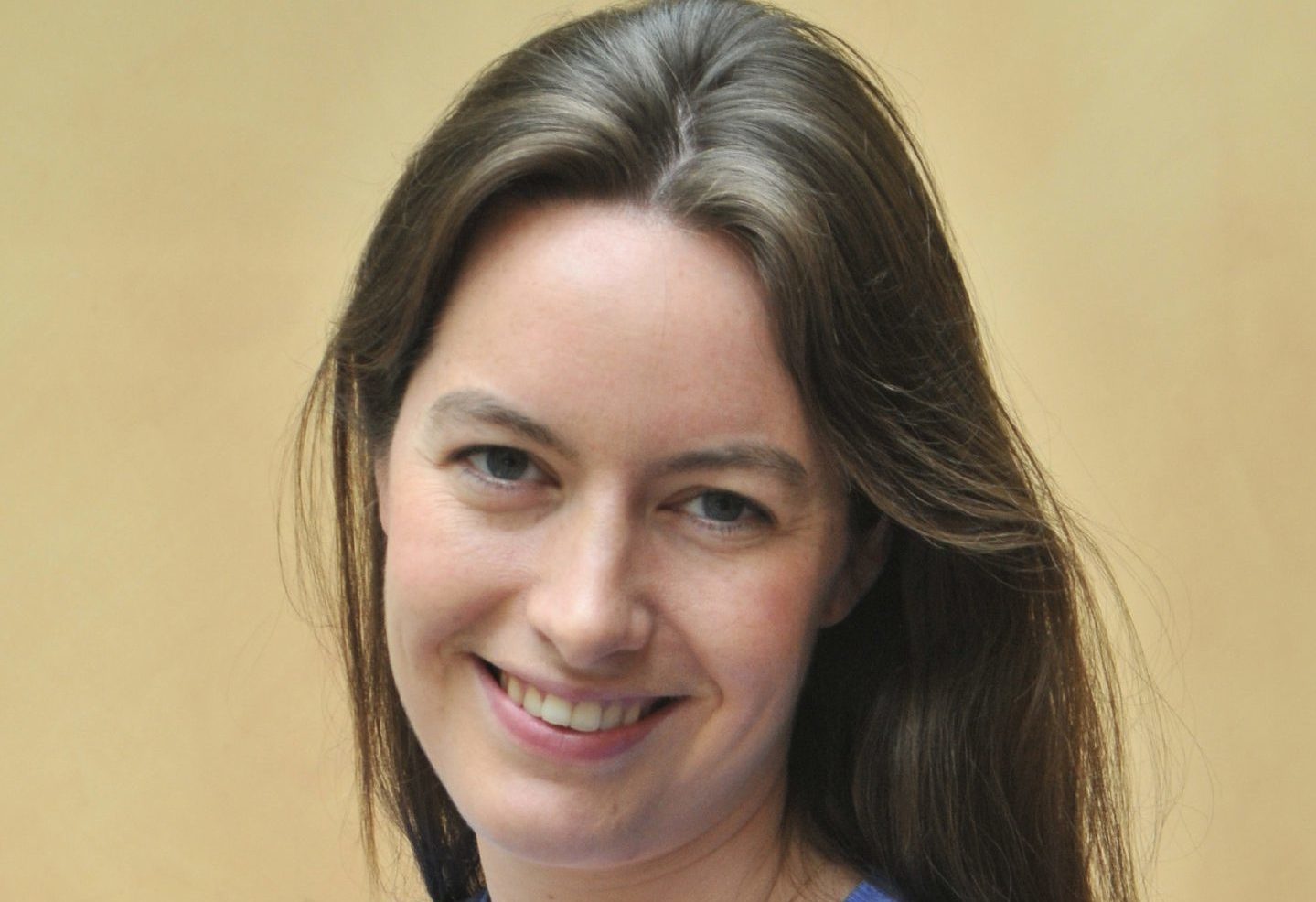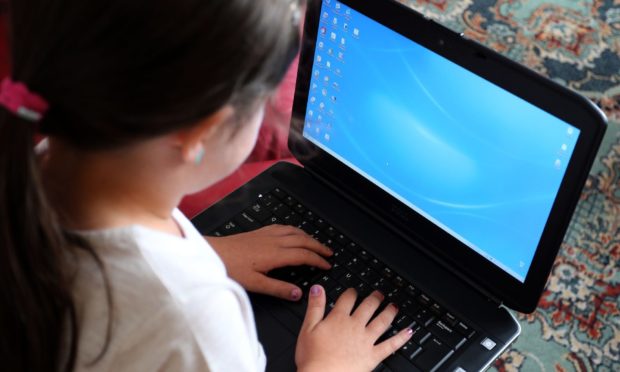Whether we like it or not, social media is a big part of life for many young people.
However, the last few years have seen growing concern among parents over the effect of the online world on their children.
There is a feeling among many that the young generation’s knowledge of technology – particularly on platforms such as TikTok and Snapchat – has outgrown their parents’, leading to worries over how to keep track of what kids are up to online.
Despite the fact that we are now using the internet more than ever, over three quarters of UK adults are concerned about going online.
Fewer parents feel the benefits outweigh the risks of their children being online – falling from 65% in 2015 to 55% in 2019, according to UK Government data.
So, what has gone wrong with the internet? What is being done about online safety? And what can we do to keep our kids safe?
To get some answers, the Press and Journal spoke to Aberdeen woman Annabel Turner, who founded CyberSafe Scotland in 2018.
The former barrister is also the co-chair of the Online Safety, Child Sexual Exploitation and Child Trafficking Sub Committee of the Aberdeen Child Protection Committee.
“What’s happening on social media is it’s becoming a space that doesn’t have a great deal of adult presence in the child-occupied part of it, other than adults who are there for the wrong reasons,” said Ms Turner.
“In any part of society, if you have a space that’s solely occupied by children and doesn’t have child protection built into it, then you have an elevated level of risk.
“Children are spending increased amounts of time, especially post-pandemic, on devices with very low levels of parental engagement, and that is where risk is generated.”
Estimate: 300,000 people in the UK have an interest in children online
According to the Internet Watch Foundation, last year saw an 80% increase in child-generated sexual abuse imagery.
The body estimates that there are a terrifying 300,000 people in the UK who have an interest in children online.
“They contact hundreds of children at the same time, until they find children that will reply to them,” said Ms Turner.
“That’s their method of operating.
“The children that are most at risk are those that are spending a lot of time online unsupervised.
“Social media is the easiest place for people to target children because they can find out a lot of information about them very quickly.
“They’re able to establish a relationship of trust with a child a lot more quickly on social media because of the level of information children give out about themselves on social media without realizing that’s what they’re doing.
“Children just see it as generating content the same as everyone else.
“The other area we see it happening is in gaming, in areas where people can use financial leverage.”
But child exploitation isn’t the only danger attached to young people’s use of social media, said Ms Turner.
Isolation from the real world
“One of the massive problems is young people feeling isolation when they use social media.
“Previously, if you watched the news on the TV as a family, it would have been discussed, there would have been more of a family element to things being spoken about.
“Now when it comes to things like fake news, you’ve got particularly teenagers consuming, on their own, massive amounts of news that they don’t know the accuracy of, often in relation to quite overwhelming events.
“We need to re-establish that discussion.
“Even if as a parent you feel like a bit of an idiot, you don’t need to, because it’s just reopening the dialogue about it.
“So much of the stuff kids are seeing on social media isn’t accurate, and that’s a massive issue.
“And it’s very polarised, because the algorithm just shows you what it thinks you want to see.
“So once you’ve started watching any news event from one political perspective, it just shows you more and more of that perspective.
“It’s that lack of balance that is doing more harm from a mental health perspective as they get older.
“And we can do a lot about that as parents, just by talking about events.”

She added: “The thing that’s making social media more dangerous is that the age that people are allowing their children to have it is creeping down and down.
“That’s probably heightening the risk more than anything else.
“Even in the five years I’ve been working with this, I see more and more P5s, P4s, P3s on social media.
“That creates a real issue.”
‘Delaying is really powerful’
For many parents, it feels like the only thing they can do is delay their kids having access to social media for as long as possible. This could be by making their first mobile phone a non-smartphone.
This, according to Ms Turner, is a more effective tactic than parents might think.
“Delaying is good,” she says.
“Delay is really powerful when you think about child development.
“Every six months your child gains a massive amount of maturity, psychologically speaking, to be able to deal with stuff.
“Every six months you buy is significant in terms of child development, we mustn’t forget that.
“That’s why it’s so important that we create the space for them to mature.
“By the time kids are in S3/S4/S5, they’re much more self-aware, in terms of not wanting to put out stuff that could be seen as embarrassing.
“They’re more aware of the employability issue, and that they’ve got a profile to maintain.
“Let’s face it, we want our children to be digitally literate.
“If you look at the number of jobs available in Aberdeen at the moment for social media managers, it’s such a big part of the jobs they’re going to be going into.
“We want them to be ready at 18 to do that.
“They also need to have a clean social media presence themselves, where they haven’t been making mistakes on social media, because that has a massive impact on employability.
“So allowing your child to mature before they enter that space is vital.”
‘Change is coming’
It was amid widespread relief among parents that the Online Safety Bill was published last week at Westminster, leading to hope that the internet will become a safer place for young people.
The draft legislation imposes a duty of care on digital service providers to moderate user-generated content in a way that prevents users from being exposed to illegal or harmful content online.
The government has called the plans globally “groundbreaking” and claims it will usher in “a new age of accountability for tech and bring fairness and accountability to the online world”.
The Bill, which has been in the works for several years, is being scrutinised by a joint committee of MPs. A final version will be formally introduced to parliament for debate later this year.
Under the terms of the Bill, social media companies will be prevented from allowing under-13s onto their platforms.
By law, they will be have to introduce AI-driven age verification measures. This means simply giving a date of birth will no longer be enough to gain access to social media sites.
Ms Turner says: “It will be AI-led, they will recognise how old children are by patterns in their use, so it won’t be enough just to put in a date of birth as is currently the case.
“So this whole dilemma that’s facing parents at the moment, when it comes to 10 to 13-year-olds, that, in theory, is going to change dramatically over the next few years.
“As a parent, you can feel empowered that you know that change is coming.
“That hopefully gives parents something to hold onto.”



